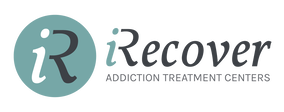The 5 Stages of Addiction Recovery:
Why You Should Know Them

Recovering from an addiction can be a journey that is unique to each person in recovery. In other words, what recovery looks like for Joe may look completely different than Mary. The biggest reason for this is because there are so many factors that come into play, such as:
- The type of addiction or substance abused
- Severity of the addiction
- Motivation level of the individual to recover
- Strength of a support system
- And much more
When we’re looking at the path someone walks when it comes to addiction recovery, we teach that there are stages involved in recovery. Understanding the stages may be helpful if you’re navigating addiction treatment in Canada or anywhere in the world. Let’s look at the five different stages of recovery closer:
Stage 1: Recovery Contemplation (pre-abstinence)
The first stage of recovery is contemplation. To contemplate something means to think about it or mull it over. In recovery, this could mean that you’re thinking about how abusing your substance of choice is bringing you negative consequences, or you’re just not sure you want to continue using it. For example, if your drinking habits are getting you in trouble with the spouse or you’re missing more and more workdays, you might think more and more about quitting. One day, you might feel like all is well and you’ve got a grip on your drinking. Another day, you may feel like you’ve got major drinking issues and better try to get a grip.
This ambivalence is normal in the first stage of recovery. And, this stage can go on for a while. You may try to quit for a while and then get back into it again, until eventually, you make a solid commitment to stop using that drug of choice.
This propels you into the second stage of recovery.
Stage 2: Detox & Withdrawal (0 – 3 months)
The second stage of recovery begins the moment you stop using your drug of choice. This early stage of recovery is oftentimes reported to be the most challenging because many people go through detox during this time, experiencing uncomfortable and sometimes grueling withdrawal symptoms. Chances are you will encounter some withdrawal symptoms as a result of your substance abuse. The symptoms will vary depending on what drug or drugs you’ve been using, but the good news is that you can detox from them and get on with your recovery easier than you think.
If you can go to a detox or residential treatment center, that’s your best bet because there you will be under supervision by addiction specialists. Depending on the drug you are being weaned off, you may be able to receive medications that will help you to be more comfortable while going through withdrawal. Common withdrawal symptoms include:
- Shaking
- Sweating
- Nausea
- Headaches
- Body aches
- Sleep problems
- Anxiety
The worst part of the detox stage is usually the first week, with withdrawal symptoms usually peaking in that time. Professional recovery treatment is recommended so you’re safe during detox, and have adequate support, such as:
- Counseling – Individual and/or group
- Medical supervision during detox
- Mental health evaluation
- 12 Step or support groups
- Spending between 30 and 90 days at a residential treatment center increases your chances at maintaining your sobriety greatly.
Stage 3: Addiction Recovery Treatment (3 months – 1 year)
Stage three of addiction recovery involves continued addiction treatment, as well as addressing any mental health or emotional issues. This stage generally lasts from about three months to a year. This is the part of treatment that you really get down and dirty with “doing the work”. It’s likely that underneath your addiction, you’ve got some things to address, such as shame, guilt, fear, and so on. Being willing to start digging under the surface alongside a mental health professional will help tremendously. Getting sober and clean is one thing, but healing emotionally will help you live a better life all the way around.
If you went through Stage Two at an inpatient treatment facility, it’s recommended to continue with treatment to increase your success rate long-term. Often, those that go through inpatient treatment finish up there and opt to attend an outpatient treatment center longer-term. In addition, ongoing counseling and some type of support group is recommended.
Stage 4: Active Recovery and Maintenance (1 – 5 years)
When Stage Four begins, you’ll have already done quite a bit of recovery work, which has likely benefitted you greatly. This stage lasts for several years and will still require that you stay on top of recovery principles. You’ll want to be sure that you’ve become aware of triggers and know how to contend with them if and when they come.
Ongoing support is helpful during this stage. Most people opt to continue seeing a counselor if they’re still having some struggles. In addition, attending a 12 Step or support group helps many people stay strong in their recovery. It also gives them a chance to help others who may be struggling with an addiction or hitting a rough patch in recovery.
Stage 5: Advanced Recovery (5 years and beyond)
The advanced recovery stage is a stage you’ll be in the rest of your life. Hitting five years clean or sober is quite a milestone, and sobriety has likely become a lifestyle. In this stage, urges or cravings come few and far in between. However, if they do come, you’re likely able to overcome them easily because of all the recovery work you’ve done prior. Some people still opt to attend regular support groups during this stage, to receive and give support.
Addiction Recovery As A Process
It helps to view addiction recovery as a process or stages. And, the recovery road isn’t usually a straight and narrow path. Rather, it’s a bit zigzagging with some ups and downs, but with regular support from professionals and peers, you’re certainly able to overcome addiction and live a great life.
Reach Out For Help If you are struggling from an addiction, know that you are not alone, and you do not have to try to overcome such an addiction alone. Addiction treatment in Canada is some of the finest treatment around. Once you can admit that you are having problems, you can reach out for help via various avenues and begin your journey to recovery. Substance abuse problems are quite common, so there is no shame in admitting such.
There is a way out of addiction, and here at iRecover Treatment Centers, we’re here 24/7 to assist you. Addiction treatment in Canada can be just what you need to begin creating the kind of life you truly desire. Give us a call at 877-387-4155 and get started on your recovery journey now.
Ready to take the next step on the road recovery?
Give us a call at 1-877-387-4155. We are available 24/7/365.
If your loved one needs addiction treatment, know that professional help is available and helpful. Here at iRecover Treatment Centers, we’re here around the clock to assist those in need in any way we can. Addiction treatment in Canada can be just what your loved one needs to get free and begin creating the kind of life they truly desire.
